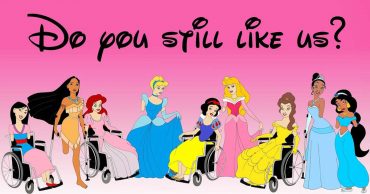
Drawing too many similarities, or trying to, when comparing the Apple TV+ show, Foundation, to the epic story of Dune, can likely drive a person to see what isn’t there, but it is fairly easy to see how the comparison can open the eyes of the fans to what the two stories have in common. To state that the stories are very different is accurate since the directions they take end up being quite opposite when set side by side. But the common theme is that both Foundation and Dune are centered around the possible collapse of society and the key elements that are necessary to keep things from falling apart entirely. The real similarity lies in the idea that society will grow increasingly unstable the larger it grows, as the empire found in each story tends to be filled with intrigue of one sort or another begins to rip things apart from the inside and spark hatred and resentment between those with influence and those who are trying to remain in favor. The stories are quite different in a lot of ways, but they’re also set along a familiar track that is easy for fans to notice.
One major difference is that Dune is grounded largely in philosophical ideals that fuel the logic within the story, while Foundation flips this and uses logic to drive the story. But somewhere along the line, it’s easy to see where the two stories meet in their ideology, which is a lot of fun to note since neither story appears to step on the others toes, but they definitely share a similar narrative about society that many would likely agree with. Another similarity is the response to the monumental shift in each story since in Foundation, the moment that Hari Sheldon admits that his predictions of the Empire’s collapse, while the rise of Paul Atreides in Dune is what shakes things up in the story. Each story goes about the shift in the status quo in a different manner, but the shake-up is still easy to see in each tale.
Another way to compare these two stories is that they each have a centralized rule that controls the whole of the empire, even if there are rogue elements that they can’t always account for, which once again strengthens the idea that the continued growth of a given society will force that said society to splinter and fragment at some point. How this happens in each story is different, but it’s the fact that it happens in the first place that makes it notable and easy to recognize. One could also make the connection that there is an individual who becomes key to the story and will bring about the changes that will be violent, disruptive, and capable of altering the face of the known world in some fundamental manner. Paul is the figure that does this in Dune, even though his influence eventually fades and has to be carried on by others. Hari Sheldon could be said to be the same type of character that shakes things up and has to rely on others to carry his message forward, but it could also be said that Foundation moves this idea forward much quicker by attempting to focus on Gaal, his possible successor, within the first few episodes.
Several other similarities are still separated by the differences that exist between these two stories, making it clear that there’s no need to wonder if anything has been copied or retconned. But it is possible to state that great minds think alike since taking a close at these stories does indicate that their authors had a very clear and interesting view of society and what it took to make it work across multiple worlds. Even thinking of a society that envelops an entire galaxy or more worth of people is a dizzying experience, so the fact that a dedicated writer can think up this type of story is amazing without question. But it is bound to happen that ideas will begin to circulate and form similarly as time goes on, especially considering that when given the vast scope of human imagination, we are still creatures of habit that will fall back upon what we know and what is comfortable in one way or another.
Looking at it in this light makes it easy to think of why we tend to find similarities between many stories, since despite our lofty ambitions when it comes to storytelling, habit often tends to step in and dictate what will happen throughout the course of a story. While both Foundation and Dune are quite different in their own ways, they do share a lot of moments in which they tend to tell the same type of story about society and civilization that indicates how the bigger an empire becomes, the less stable it will eventually prove to be.
 Follow Us
Follow Us





